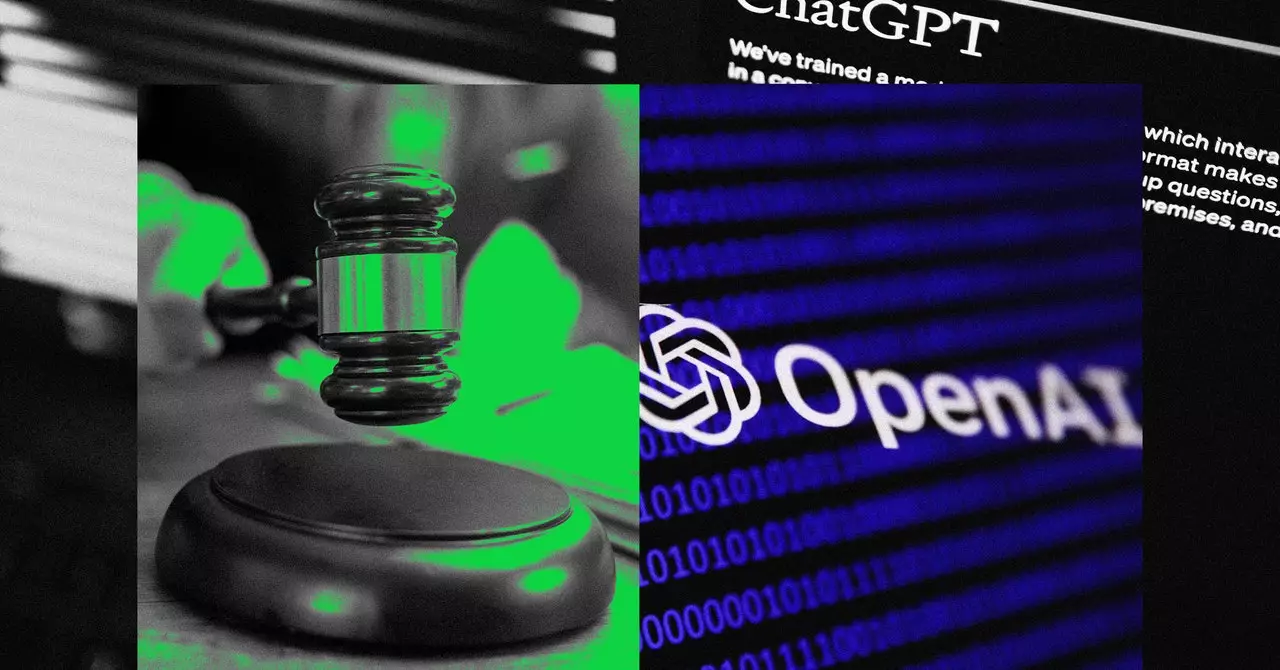The rise of artificial intelligence (AI) has ushered in a host of legal challenges, particularly concerning copyright and intellectual property. Recent legal disputes involving major players like OpenAI have highlighted the complexities of the Digital Millennium Copyright Act (DMCA) and its application in the context of AI-generated content. As various news outlets pursue lawsuits against these AI companies, the outcomes of these cases could set precedents that resonate through the legal landscape for years to come.
At the heart of the current legal battles is the question of how AI models, such as OpenAI’s ChatGPT, utilize copyrighted materials. Publishers claim that AI models are trained on their content without proper compensation or consent. Legal representatives for these publishers argue that the DMCA should apply to these AI-generated outputs, alleging violations of intellectual property rights. However, this view is not universally accepted, leading to a growing divide among legal scholars about the legitimacy of such claims.
Matthew Sag, a professor at Emory University, represents one perspective on the matter, asserting that the claims against OpenAI lack substance. Sag’s analysis points out that the publishers have not demonstrated valid legal infractions, primarily because they failed to provide clear evidence of unauthorized copies being distributed by ChatGPT. This polarizing viewpoint underscores the current tensions within the academic community over the interpretation of copyright law as it applies to modern technology.
Conversely, intellectual property lawyer Ann G. Fort highlights the necessity for the plaintiffs to furnish explicit examples of how ChatGPT’s outputs constitute copyright infringement. Fort believes that success in these legal battles hinges on the ability to prove that specific AI-generated responses directly replicate copyrighted materials. This focus on concrete examples may prove pivotal; without them, legal claims risk being dismissed outright.
The legal proceedings are not limited to individual cases, as ongoing arguments can shape the future of DMCA claims in the world of AI. The recent dismissal of some claims does not signify the end of these legal actions. Instead, Judge McMahon’s remarks suggest broader concerns about compensation for content creators. She pointedly emphasizes that the crux of the dispute may lie in how AI companies benefit from the use of published articles without appropriate recompense to the original authors. This angle raises significant questions about the ethical and legal frameworks governing AI development.
As the legal discourse evolves, experts like James Grimmelmann warn that dismissals based on the theory of “no standing” could represent a seismic shift not only for AI but potentially for copyright law as a whole. The implications could extend far beyond the case at hand, potentially redefining how digital content is protected and how companies can utilize such content in their AI training processes.
As AI technology advances rapidly, the legal frameworks that govern its usage must also evolve. The tension between innovation and compliance with existing copyright laws presents a unique challenge. Legal systems worldwide must grapple with the implications of allowing AI to learn from vast datasets that may include copyrighted material. Policymakers and legal professionals alike need to examine whether current laws adequately protect the rights of content creators while fostering innovation in AI technology.
In navigating these issues, collaboration between AI developers, legal experts, and content creators will be essential. Striking a balance between protecting intellectual property and encouraging technological advancement requires nuanced legal guidance, transparency, and mutual understanding among all stakeholders involved.
As the outcomes of these high-profile legal cases unfold, the implications for copyright law and AI development will likely reverberate across multiple sectors. Understanding the legal intricacies of the DMCA in the context of AI is crucial for fostering an environment of creativity and protection. Ultimately, how these cases are resolved will shape the future of both AI technology and the legal protections afforded to creative works, marking a transformative period in the intersection of law and innovation.

